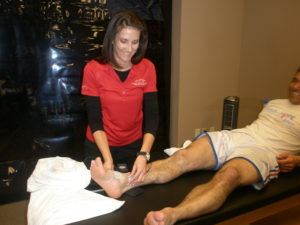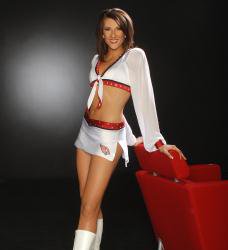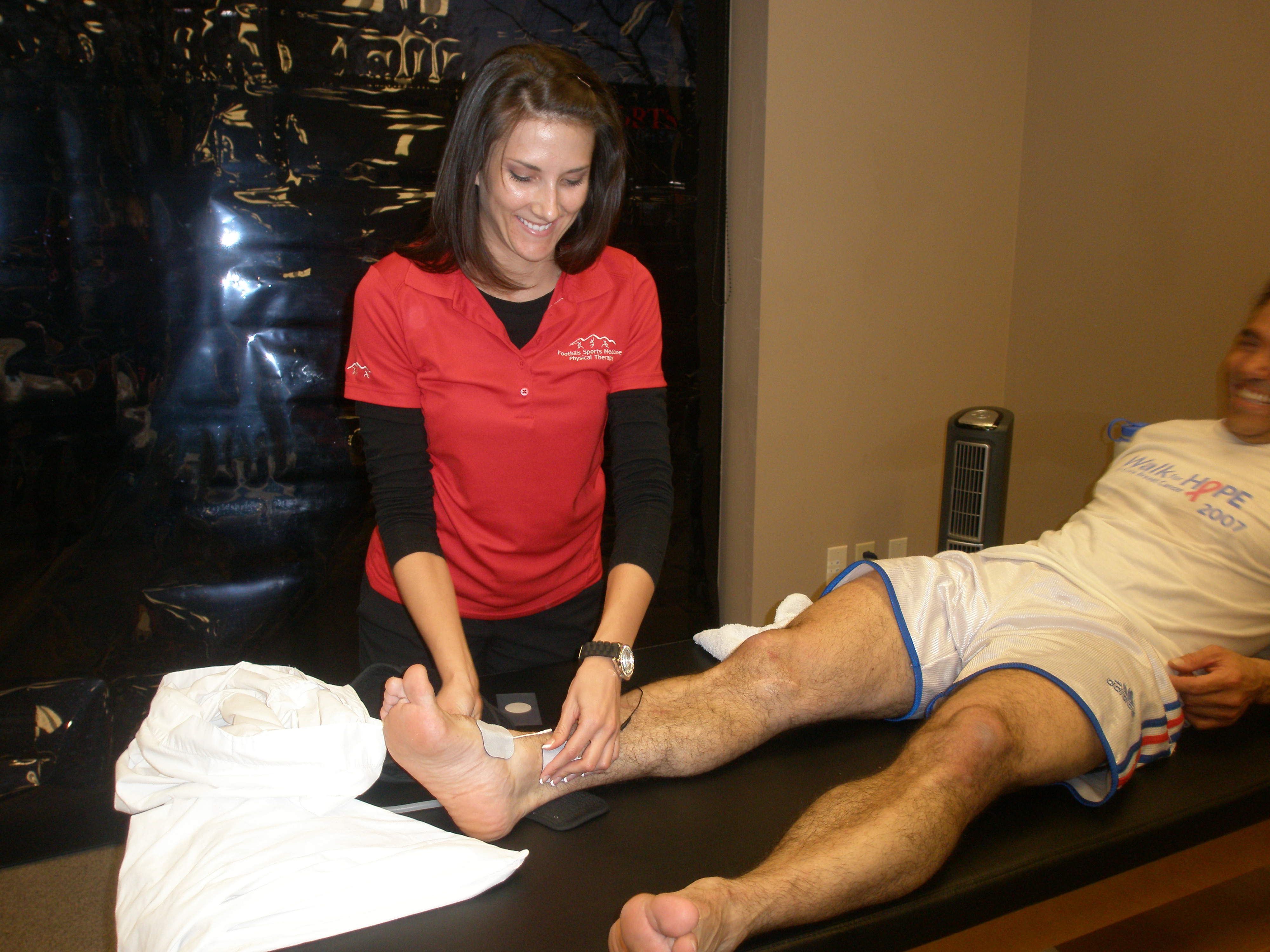 Greetings! Please welcome Nicole, who’s combining mind and body to help others through physical therapy.
Greetings! Please welcome Nicole, who’s combining mind and body to help others through physical therapy.
So, why science?
Nicole: Science and math were always the most interesting subjects for me growing up in school. I have always had the logical brain for that type of work, and the topics are fascinating to me. I realized at a young age that I love to serve others and that a career in the medical field would be perfect for me. While attending college at Arizona State I really gained an appreciation for the therapy side of medicine. I love working with patients and helping them heal, which is why I earned a B.S. in Kinesiology and am pursuing my Master’s degree in Occupational Therapy. I hope to eventually work in a clinic or school setting as a pediatric occupational therapist.
How does your degree tie to what you’re doing now?
Nicole: I am a technician and a patient care coordinator. My degree gave me a great background in biology and physiology which is extremely helpful when assisting patients. I also gained an overall understanding of the different positions and careers within the medical field while in school. Having this broad knowledge has made it easier for me to speak with and relate to the different doctors and staff. All of these things combined have given me the drive to continue my education to become a certified and more knowledgeable professional in the future.
Best part of your day job?
Nicole: The best part of my job is seeing injured patients leave in less pain after each visit and eventually recover to the point they no longer need therapy every week.
What’s a typical day like for you?
Nicole: On a typical day I start work at 7 a.m., greeting patients as they arrive for morning therapy. I assist in checking them in, helping them with their exercises and helping the therapist make sure they get ultrasounds, electrical stimulation, and ice or heat as needed. I spend a few hours driving around to different doctor offices making sure that our mutual patients are as satisfied as possible. Half way through my day I have the opportunity to spend some time as a nanny for a family of triplets. I help them with homework, drive them to their respective sports/extracurricular activities and enjoy making family dinners. I usually finish just in time to go to practice. We have practice 2-3 times per week as well as taking time to visit the gym and do individual workouts. My days are jam packed, but I love it!
Which came first? Your interest in science or cheerleading?
Nicole: I would say, as an active child, my love for dance and cheerleading came first. However, the skills dancing taught me have helped me to become a structured and responsible student, which is where I gained my love for the sciences.

Tell us about the teams you cheered for, how long you’ve cheered for them, and why you tried out to be a professional cheerleader.
Nicole: Growing up, I was a member of a performance company at a local dance studio from about the age of 12. I continued to dance through high school and occasionally in college. I had not been a part of a pom or cheer team since seventh grade when I decided to try out for the Cardinals. I was in my last semester at ASU and, following the footsteps of one of my best friends, I went out on a limb and tried out to be an official cheerleader! I had missed dancing so much and was thrilled to have such an amazing rookie season following the team all the way to the Super Bowl.
Do you find that stereotypes about cheerleaders helped or hindered your professional experiences?
Nicole: It is not uncommon for people to think that cheerleaders are airheads and unable to be intellectual women. I know I am a member of a team that loves to break that stereotype and we all do it very well. I remember teachers giving me a hard time in high school for being a dancer, which only made me work harder to do very well in their classes. Needless to say, they stopped giving me a hard time when I was at the top of the class! I have found more recently that mentioning I am a member of the Arizona Cardinals Cheerleaders has earned me respect in the job and school arenas. We have all made a reputation for ourselves as intellectual, responsible and respectful women and that is very endearing.
How do your fellow cheerleaders accept your interest in science?
Nicole: My fellow cheerleaders are very accepting of my interest in science. Everyone is very supportive, and we all work together to encourage, support and help each other achieve our goals.
Do you have any advice for youngsters who might feel torn between following one dream and another?
Nicole: My advice would be to just go for it! You make the stereotype what you want it to be and most people tend to find more in common with other well-rounded people. I have learned so much about how to be a responsible citizen through my years of dance and cheerleading, and I can tie that knowledge in with my education to make myself more successful at my job and a more eligible candidate for future jobs.
Along these lines, what advice would you give your 12-year-old self?
Nicole: If I could go back in time I would tell myself to be confident in my feelings and my decisions knowing it will all work out for the best. I would advise myself to always do my best and focus on school for the short time I am there, because it will surely pay off in the end.
Why do you want to be a Science Cheerleader?
Nicole: I like being a Science Cheerleader because I get the best of both worlds. My knowledge of science expands while I’m fulfilling my passion for dancing. Each day I find new ways to intertwine the two fields and enhance my life and hopefully those around me.


How do other science majors becoming science cheerleaders]
It’s great to see more cheerleaders going into therapeutic careers such as OT. This page has good information for those interested in the top physical therapy assistant schools http://www.exercise-science-guide.com/blog/top-10-physical-therapist-assistant-programs/
It is an excellent therapy is a great help for the team. http://www.priceperhead.com/